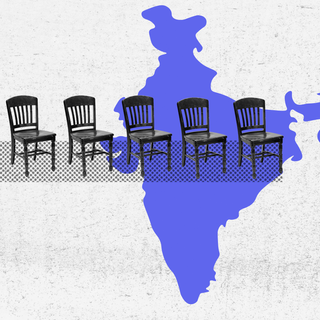Popular gaming platform Twitch rolled back its decision to adopt the gender-neutral spelling “womxn” after drawing censure from transgender groups, who touted the change as exclusionary and transphobic.
“While we originally wanted to use a word that acknowledges the shortcoming of gender-binary language, after hearing directly from you, including members of the LGBTQIA+ community on Twitch, we will be using the spelling ‘women’ moving forward,” the company tweeted on March 2.
A notable live streaming service owned by Amazon, Twitch allows users to broadcast their gameplay or activity by sharing their screen in real-time. The decision to swap “women” for “womxn” was announced as part of its celebration of Women’s History Month celebrated in March.
“Join us in celebrating and supporting all the Womxn creating their own worlds, building their communities, and leading the way on Twitch,” the platform announced in a tweet that has since been removed.
Related on The Swaddle:
From ‘Cunt’ to ‘Careerwoman’: the Many Ways in Which Language Propagates Sexism
The word womxn has emerged as an alternative to defy the traditional use of gender in language. The input of ‘x’ avoids the suffix ‘-man’, distancing the word from otherwise patriarchal roots. Backlash against the seemingly supportive move, however, fermented instantly. Transgender communities and their allies were quick to point out that by making a linguistic distinction between transwomen and women, the company further alienated transwomen.
Someone pointed out that with womxn, “you’re just separating them more, you’re not being inclusive, you’re excluding them from women.” Twitch eventually withdrew the change and apologised, noting it is “committed to growing from these experiences, doing better, and ensuring we’re inclusive to all.”
The usage of womxn ties in with the building of a gender-neutral lexicon that acknowledges and celebrates plurality of identity, which also influences how we see the world. According to a 2019 study, using gender-neutral pronouns increases positive attitudes towards women and LGBTQ+ people by reducing the dominant male identity and subsequently causing less gender-based bias.
The predecessor to womxn was ‘womyn,’ which catered to a similar objective but fell short in addressing wider interests. Womxn germinated to broaden the scope of womanhood by including ‘womxn-of-color,’ ‘trans-womxn,’ and other ‘womxn-identified’ groups. The claim that the term is soundly inclusive of trans people, however, is hotly debated.
Trans women, in particular, are a severely oppressed group, and much of that oppression is closely tied to denials of the legitimacy of their genders, a University of Chicago study notes. Activists have pointed out that transwomen have waged valiant battles to identify themselves as women, so the ‘x’ is unnecessary and even demeaning. A failure to respect the gender identification of trans people is further linked to forms of transphobic oppression and even violence. Moreover, non-binary people do not refer to themselves as women anyway, so the benefits of such a change are as nebulous as the term itself. Critics also dismissed this as a publicity attempt, where Twitch used womxn as a “fix-all” bandaid to address an intricate, plural compendium of experiences.
The politics of womxn thus pivots around a simple question: whether the term is as inclusive as it purports to be and actually challenges notions around heteronormativity. While gender-neutral language is a reflection of changing sensibilities, it is still a precursor to lived experiences. It should act as a conduit for identities to grow into real people.
Jennifer Prewitt-Freilino, a professor who helmed a study around language experiences and inequality, noted in a BBC article that “the problem is that not everybody agrees on what that language should be,” explaining that the “conventions are moving so fast that it’s hard for anyone to stay on board.” While Twitch may have succumbed to this pitfall, the question of accountability still falls on a collective conscience.
It’s never too late for Twitch, or anyone, to learn that listening and responding is the groundwork to be laid in this fight for dignity and inclusivity.




